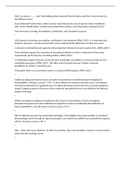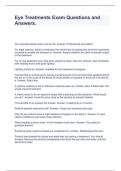Hello, my name is …….., and I’ll be talking about Advanced Practice Nurses and their requirements in a few different states.
As an Advanced Practice Nurse, there are four main clinical roles one can pursue: Nurse Practitioner (NP), Nurse Midwife (NM), Certified Nurse Anesthetists (CRNA), and Clinical Nurse Specialist (CNS).
They all require Licensing, Accreditation, Certification, and Education to pursue.
*
LACE stands for licensing, accreditation, certification, and education (APNA, 2017). It is important that students, educators, and advanced practice nurses understand the differences of these four terms.
L-Licensure is decided by state agencies whose legislature dictates licensure requirements, (APNA, 2017).
A-Accreditation regards the evaluation of educational institutes in order to determine if they meet requirements set forth by the accrediting bodies, (APNA, 2017).
C-Certification regards showing one has the skills, knowledge, and abilities in certain specialty area by certification processes, (APNA, 2017). This differs from licensure because it allows a licensed practitioner to certify in a specialty area.
E-Education refers to an accredited master’s or doctoral APN program, (APNA, 2017).
*
California’s advanced practice nurses are under the jurisdiction of California Board of Registered Nursing (BRN), (Nursing Licensure, 2017). To be certified as an advanced practice nurse, a practitioner must also be licensed as a registered nurse. To obtain advanced practice licensure, one must graduate a
master’s degree program in the area of their preferred specialization that is accredited by the National League of Nursing.
*
CRNAs must attend a program accredited by the Council on Accreditation of Nurse Anesthesia Educational Programs and seek certification through the Council on Certification/Recertification of Nurse Anesthetists, a nes the tists (Nursing Licensure, 2017).
*
NPs in California may also have prescriptive privileges. To be eligible, they must complete an advanced pharmacology course through an approved program, any national accredited nurse practitioner program will do, (Nursing Licensure, 2017).
*
NMs – Same with nurse midwives, for them to prescribe, they must complete a master’s or post-master’s
advanced pharmacology course.
* CNS – For clinical nurse specialists, if their master’s program meets the Board’s standards, they can qualify by verifying education and clinical experience. The clinical experience must have the 5 advanced
nursing component areas:
1.Expert Clinical Nursing Practice
2.Clinical Leadership
3.Research
4.Education
5.And Consultation.
(Nursing Licensure, 2017).
*
In Washington, Their Advanced Registered Nurse Practitioner are regulated by the Nursing Care Quality Assurance Commission, a part of Washington Department of Health, (Nursing Licensure, 2017).
Washington recognizes Nurse Practitioners, Certified Nurses Midwives, and Certified Registered Nurse Anesthetists. Clinical Nurse Specialists are not licensed in Washington.
*
All APRNs must hold a Washington Registered Nurse license. With any APRN role, one must complete an approved advanced practice program. Graduate level nursing programs must be accredited by an accreditation agency recognized by the United States Department of Education (USDE), or the Council of Higher Education Accreditation.
*
Certification will always involve a competency-based examination.
NP students will need to pass a national certification examination specific to their area of specialty.
*
Nurse midwives take their certification examinations through the American Midwifery Certification Board, while CRNAs go through the National Board of Certification and Recertification for Nurse Anesthetists, (Nursing Licensure, 2017).
*
Certified Registered Nurse Anesthetists (CRNA) are nationally certified through the National Board of Certification & Recertification of Nurse Anesthetists.
*





